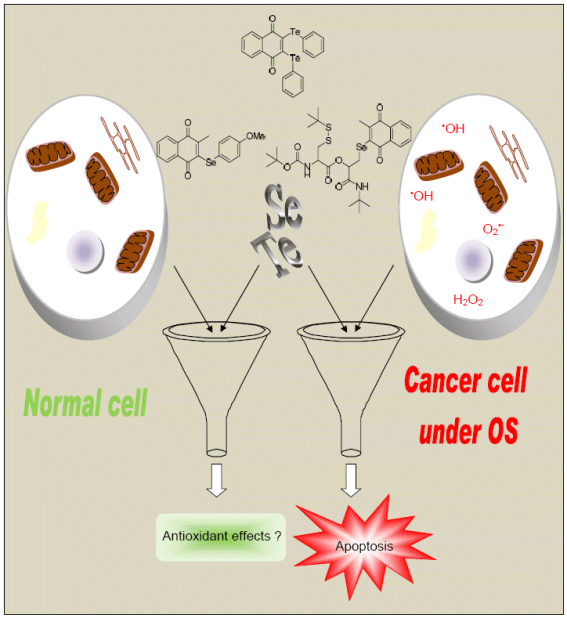Various human diseases, including different types of cancer, are associated with a disturbed intracellular redox balance and oxidative stress (OS). The past decade has witnessed the emergence of redox-modulating compounds able to utilize such pre-existing disturbances in the redox state of sick cells for therapeutic advantage.
Claus Jacob et al. from Saarland University, Saarbrücken, Germany, describe selenium- and tellurium-based agents that can turn the oxidizing redox environment present in certain cancer cells into a lethal cocktail of reactive species, which pushes these cells over a critical redox threshold and ultimately kills them through apoptosis. This kind of toxicity is highly selective: normal, healthy cells remain largely unaffected because changes to their naturally low levels of oxidizing species produce little effect.

- Selenium- and Tellurium-Containing Multifunctional Redox Agents as Biochemical Redox Modulators with Selective Cytotoxicity
V. Jamier, L. A. Ba, C. Jacob,
Chem. Eur. J. 2010, 16 (36).
DOI: 10.1002/chem.201000884




